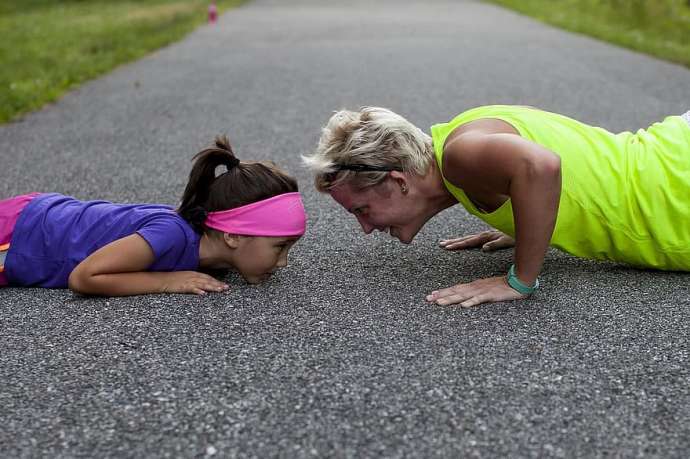Časoris is an online newspaper aimed at children. Each week we’ll take an article and post it here as a Slovene-English dual text.
Kako se odlepiti od kavča?
How to leave the couch?
Written by Romana Dobnikar Šeruga, translated by JL Flanner & G Translate
Za tiste, ki vse ljube dni ždijo na kavču, gledajo televizijo in nič ne migajo, so si Angleži izmislili duhovit izraz »couch potato« (couch je kavč, potato pa krompir). In takšni zabušanti, odrasli in otroci, so se v zadnjih tednih spet namnožili po slovenskih kavčih.
For those who spend all day on the couch, watching television and not blinking, the English coined the witty term "couch potato" (couch is kavč, potato is krompir). And such slackers, adults and children, have in recent weeks multiplied again on Slovenian couches.
Že septembra so strokovnjaki za šport opozorili, da so bili otroci med pomladansko epidemijo premalo telesno dejavni in so se posledično zredili. Rezultat drugega vala epidemije verjetno ne bo nič boljši.
As early as September, sports experts warned that children were not physically active enough during the spring epidemic, and had gained weight as a result. The outcome of the second wave of the epidemic is unlikely to be any better.
Primanjkljaj organizirane vadbe se namreč pozna že po nekaj tednih, opozarja dr. Gregor Jurak s Fakultete za šport. Že v nekoronskih časih so med poletnimi počitnicami otrokom upadle telesne zmogljivosti. A ne toliko kot zdaj, v času izolacijskih ukrepov. Otroci ste namreč ostali brez pouka športne vzgoje, brez zunajšolskih športnih programov in s precej omejitvami pri gibanju v domačem okolju.
The lack of organised exercise already has effects after a few weeks, warns Dr. Gregor Jurak from the Faculty of Sports. Already in non-corona times, children's physical performance declined during the summer holidays. But not as much as now, during the isolation measures. Specifically, the children were left without physical education classes, without extracurricular sports programs and with considerable restrictions on movement in the home environment.
Gibati se moramo vsaj dve uri na dan in se pri tem še dobro oznojiti. Vir: FreepikGibati se moramo vsaj dve uri na dan in se pri tem še dobro oznojiti, svetuje dr. Gregor Jurak.
Kaj storiti?
What can we do?
Gibaj se najmanj dve uri na dan, svetuje dr. Jurak. Toda tvoja telovadba mora biti tako zahtevna, da se zadihaš in preznojiš! Tako se potem zagotovo bolje počutiš in imaš manj učnih težav.
Exercise for at least two hours a day, advises Dr. Jurak. But your workout has to be so demanding that you gasp and sweat! Then you’ll definitely feel better and have fewer learning difficulties.
V času šolanja na daljavo je problem tudi v tem, da šolarji in dijaki preveč časa preživite pred napravami. Jasno je treba določiti čas, ki ga otrok oziroma mladostnik lahko preživi pred zaslonom le za razvedrilo, meni Jurak. In ponudi konkretno »formulo«: samo toliko časa, kolikor si se pred tem preznojil z gibanjem.
During distance learning, a problem is also that schoolchildren and students spend too much time in front of devices. It is necessary to clearly define the time that a child or adolescent can spend in front of the screen just for fun, Jurak believes. And give a concrete “formula” for this: just for as long as you were sweating with movement before.
V marsikateri družini niso samo otroci tisti, ki so ves čas prilepljeni na zaslone. Zato je dobro, da za vse družinske člane določimo v stanovanju prostor za telefone. Telefon nikakor ne sodi za jedilno mizo med obroki in v spalnico, opozarja Gregor Jurak.
In many families, it’s not just children who are glued to screens all the time. Therefore it’s good to reserve a space for phones in the apartment for all family members. The phone does not belong on the dining table during meals and in the bedroom, warns Gregor Jurak.
Read more stories and improve your Slovene at Časoris, while all our dual texts can be found here.







